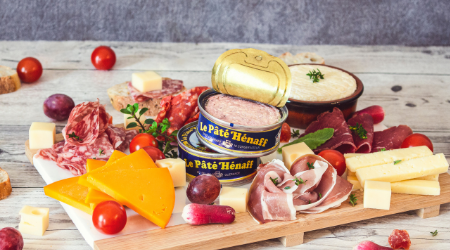Consumers are more and more concerned bout their diet and are looking for tasty, healthy and naturalness food products.
Since few years, the consumption of salt has reduced ; in France, the average salt intake of the adult population (18-79 years) decreased on average by 5.2% between 1999 and 2007.
The WHO recommends a consumption of less than 5 g per day (equivalent to one teaspoon of salt per day) in order to prevent cardiovascular disease.
Does Gonidec Cannery adds salt in its french canned seafood?
The answer is: Yes and No.
For every recipes in sauce, the french cannery do add salt in its french canned seafood. For the others recipes, in extra virgin olive or in brine, some explanations are needed.
- Sardines, anchovies in brine or extra virgin olive oil
Sardines and anchovies have the same manufacturing process including the brining part; discover more.
Brining is the process of submerging fishes into a solution of salt and water. It is a form of food preservation in which pathogens are killed by soaking the food in the salt solution.
This brining process adds indirectly some salt in the sardines and anchovies, that is why salt appears in the ingredient list of canned sardines and anchovies.
2. Mackerel
What’s about the canned mackerel in brine?
For the mackerel, the salt is present on the confidential stock that contains salt.
3. Tuna
For the tuna, it is the almost the same process except that the adding of salt is on purpose.
The Cannery Gonidec adds salt in tuna in brine/natural to cook it in a traditional way because the tuna will naturally cook in its “own juice” during the sterilization process. The French fish cannery are used to this traditional tuna process for fifty years.


